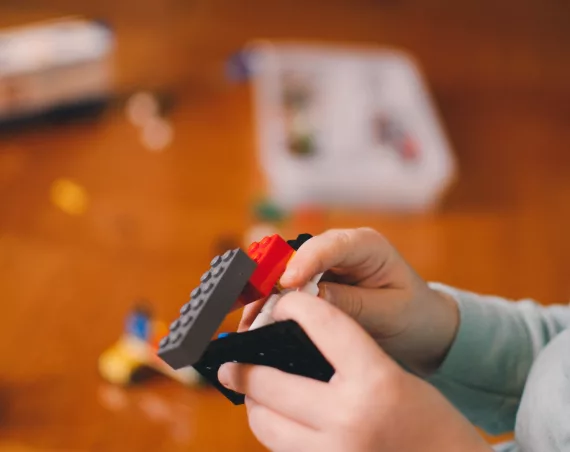
Alfie’s Vocabulary Podcast
Powered by RedCircle
Hello and welcome to Learn English Vocabulary. My name is Jack and I’m making this podcast for you to learn or revise English vocabulary. You can find a transcript of this podcast on LearnEnglishVocabulary.co.uk. There’s a page for this podcast with the transcript, an activity and a task for you to do in the comments section.
Introduction
Today, I have something a bit different to do. You see, I have two sons, Nick and Alfie and Alfie has been listening to my podcasts on his Alexa. He always asks me questions about these podcasts and wants to know how many people have listened. And so I asked him if he wanted to help make a podcast and he jumped at it. So today’s podcast is Alfie’s vocabulary lesson. He’s selected 10 words, I think he thought them up on the spot, but that’s what you do when you are six. I’m going to go ahead and play them to you and do my best to talk about them in a way that I hope you will find useful.
I understand that this is a bit indulgent – there you go, indulgent, that’s a nice advanced adjective. Indulgent is formed from the verb to indulge which means to give someone something that they enjoy, even when it might not be good for them. So if your children plead with you to watch TV when they should go out and play or do something active outside, if you let them, you are indulging them. If you’re normally quite sensible about your diet, you might occasionally indulge yourself with a slice of cake or piece of chocolate. The adjective indulgent describes an act of indulgence an act that indulges others or a person that indulges and I am being indulgent in making this podcast around the words and wishes of my son.
In fact, I will enjoy hearing him delight at his own voice in the podcast so this episode is self-indulgent.
So, I want to introduce you to Alfie who, as I have said, has listened to me making these podcasts so when you hear him in a few seconds, you may be able to hear a little of my intonation and style in his delivery.
Word number 1 is tense. I chose tense, that because we have a lot of tense times in life.
There we go. Alfie’s first word is tense. Because we have a lot of tense times in life. I’m not sure that he really does have a lot of tense times … Tense is a B2 adjective that describes a feeling that means nervous and unable to relax. You can use the word to describe a person – Alfie was tense because he had to go to the dentist or an event or action that makes you feel that way. The football match was very tense, especially towards the end of the match. We often use the word tense with situation. It was a tense situation, meaning the place and events at a specific time. So a meeting might become a tense situation if you say the wrong thing.
Let’s hear word number 2.
Word number 2 is friend. That’s because we all need friends or we’re going to be all alone.
I think that you probably know the word friend – someone you like a lot who is not part of your family. You can be friends with a family member, but normally when we use the word friend, we mean someone who is not part of your family. There are lots of informal words for friend, for example: mate, which is common in England and is quite a masculine way of saying friend – he’s a good mate is what men in England might say. In Scotland, you’d more likely hear people say pal. I think that’s similar – men are happy to admit to having pals. Buddy is a strange word. It’s another informal word for friend, but I think it’s an American import and feels a bit odd to me. Chum is another word for friend, but it is a bit old fashioned and sounds a bit posh, or stuffy. Alfie is right, we do all need friends.
Let’s hear word number 3.
Word number 3 is family. That’s because if we don’t have a family then we wouldn’t be here.
OK – you might notice that Alfie used a slightly strange and technically incorrect conditional form. For this sort of speculation, your teacher will tell you to use a second conditional which takes the form if + a past clause then a would clause. Also, he keeps saying ‘that because’ and he should be saying that’s because. In fact, he could just be saying because, but he is only six and is still learning.
Let’s hear word number 4.
Word number 4 is foe. That because I don’t think that many of you know what foe means.
What does foe mean?
It means enemy.
Well they do now …
Hmph.
I’m not sure why Alfie chose this word. I think he was on a run with words beginning with f. Alfie is right, foe means enemy. I think the word is quite formal – in fact the Cambridge Online Dictionary describes it as literary so more likely to be found in books than in speech. The examples in the dictionary are of written style language. The second is They were bitter foes for many years. This is quite a strong collocation. Bitter foes and bitter enemies are colourful phrases. Bitter is normally used to describe tastes, like the taste of grapefruit or tonic water. It can mean unpleasant and sharp and can be used to describe feelings as well as taste. If you are bitter about something, you have painful and angry feelings towards something. Bitter foes are filled with anger and resentment towards each other.
Let’s hear word number 5.
Word number 5 is positive. That’s because … I chose positive because if we didn’t have positive, we’d all be like … neeeagh and humph and all of that kind of grim stuff.
OK. You can hear that he’s taken my ‘that’s because’ correction on board. Alfie chose the word positive. Because if we didn’t have positive … the noun form is actually positivity. We’d all be like neeeagh and humph and all of that kind of grim stuff. Neeagh is not a word. I think you probably know what he means, but it’s not an item of vocabulary you should be writing in your notebook. Humph is an exclamation or strong expression of small anger. It’s very common – it’s a bit stronger than a tut. Is tutting universal? I checked and my wife thinks so. I think humphing is probably universal too. Alfie also said positivity saves us from grim stuff. Grim means worrying and hopeless. However, we use it to describe places that are a bit dark and gloomy and depressing and also the weather when the clouds are dark and it looks like there might be a storm.
Let’s hear word number 6.
Word number 6 is happy. That’s because we need to be happy or we’re just going to be all alone.
Alfie is a very social boy. He has always had his brother around and I work from home so he’s always had people around and he doesn’t like being on his own. But he’s also learning that you have to be happy and positive if you want to have friends and people who will love you.
Word number 7. Literacy … I chose literacy that because (that’s because) that’s because literacy is writing … I like writing, it’s work
OK, in schools in the UK, when you’re 6, you learn literacy and numeracy. So the word literacy for Alfie means the school activities to do with writing. In general, literacy means the ability to read and write. So you sometimes hear about the literacy rate of a country, meaning the percentage of people who can read and write. You also hear the word in the phrase digital literacy which means the ability to use computers and modern digital communications and information tools like google and search engines and social media and podcasts .
Let’s hear word number 8.
Word number 8 is complicated. I chose this word because the word complicated is well … complicated.
Complicated is an adjective that means difficult to understand because there are lots of different things to think about, lots of different parts. So lots of things are complicated. Computers are complicated, engines in cars are complicated. English grammar is complicated … it’s not as complicated as Polish grammar or German grammar and I’m sure lots of other languages have much more complicated grammar than English, but there are still bits that are quite complicated. Verb patterns are complicated and adjective order. I can never remember the order of the adjective classes – it’s a very complicated rule – I just have to try it out with weird examples … a fast red italian sports car … The adjective complex is similar. Complex describes something with lots of parts. It might not be complicated, it might be easy enough to understand, but a complex task will take a long time to do because of all the parts or stages.
Let’s hear word number 9.
Word number 9 is music. That’s because music is normally what makes me feel harmony and calm and perfect.
Alfie loves music. He’s always been interested in music. He loves dancing and playing music and singing and he listens to music all the time on his Alexa, when he’s not listening to this podcast. He says that music makes him feel harmony. This is not a normal expression. Normally harmony describes the beauty that you experience when two notes are played together. It’s the beauty of combined music. So music normally has a baseline and chords and a melody and when these sounds work together, that’s harmony. We do sometimes use the adjective harmonious in a figurative way to say that people are working together nicely. And I think that’s sort of what Alfie is trying to say. He says it makes him feel calm and perfect. Music can make me feel that way as well, when you are listening to the right music at the right time.
Let’s hear Alfie’s 10th choice.
And my last one is together. That’s because we need us to be together, to join together in life or it will be hard for everything to go like you want it to go.
This is a nice last choice. Together is an adverb that means with each other. You can be together, or join together, or work together or even stick together which means to remain friends or partners when things are difficult. Alfie is 6. He’s nearly 7. He’s at a very philosophical age as some of his childhood fantasies are being challenged and he’s trying to work out what’s important in life and he’s already worked out that whatever he figures out, it will be happier with friends and if he has people to do things together with.
I hope that you have enjoyed Alfie’s words and you will forgive my indulgence of my lovely boy. I will try to publish another podcast soon based on one of the songs that you have suggested.
Thanks for listening.
Thank you for listening, bye.





1 Comment
Sezer
The best of the podcasts you have been recording Jack because you and your son’s are together after that I don’t want to seeing other podcaster. because Alfie is here.I want to hear Alfie’s voice a lot because unbelievably natural than yours Jack (sorry my friend 😀 ) Thank you Alfie 🙂